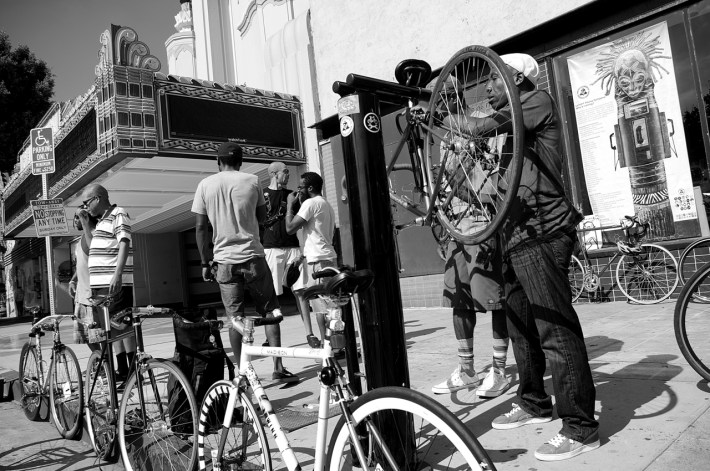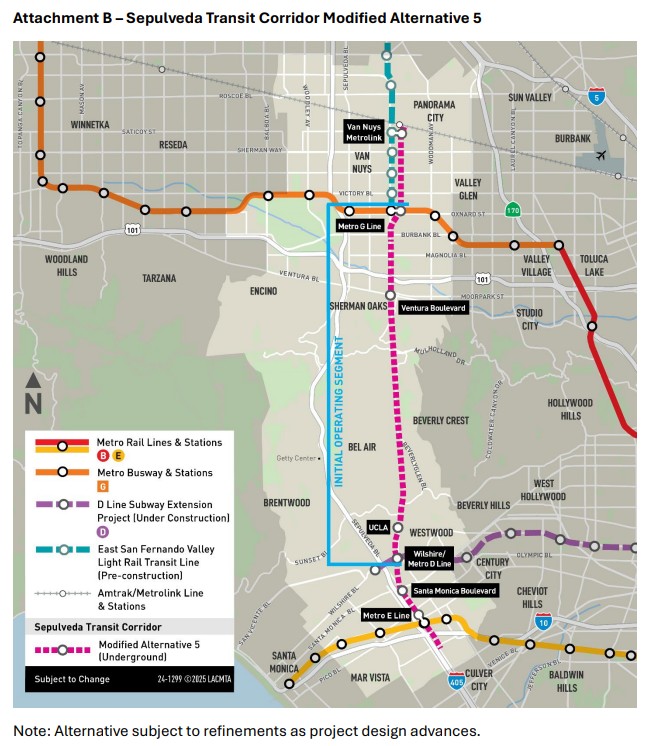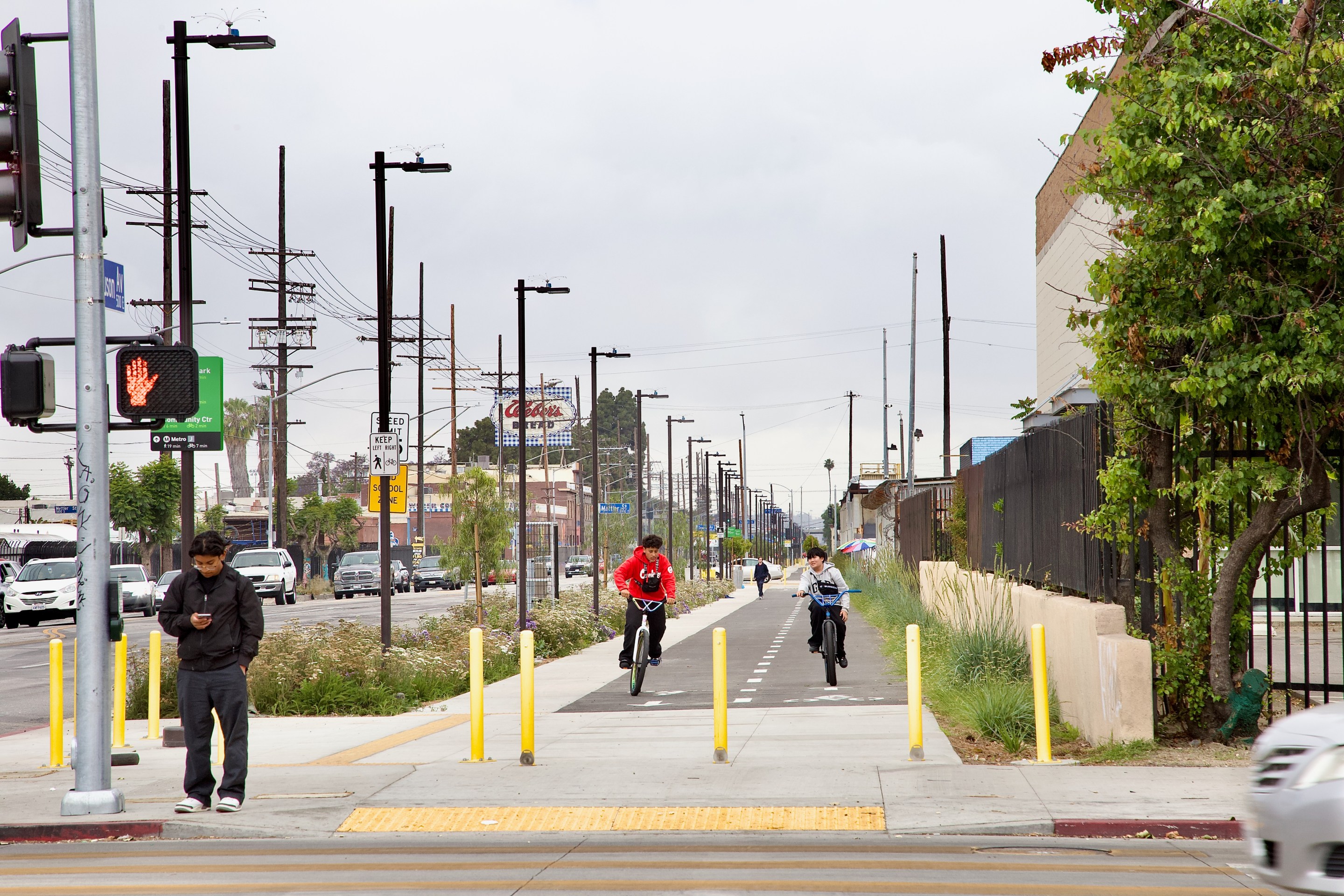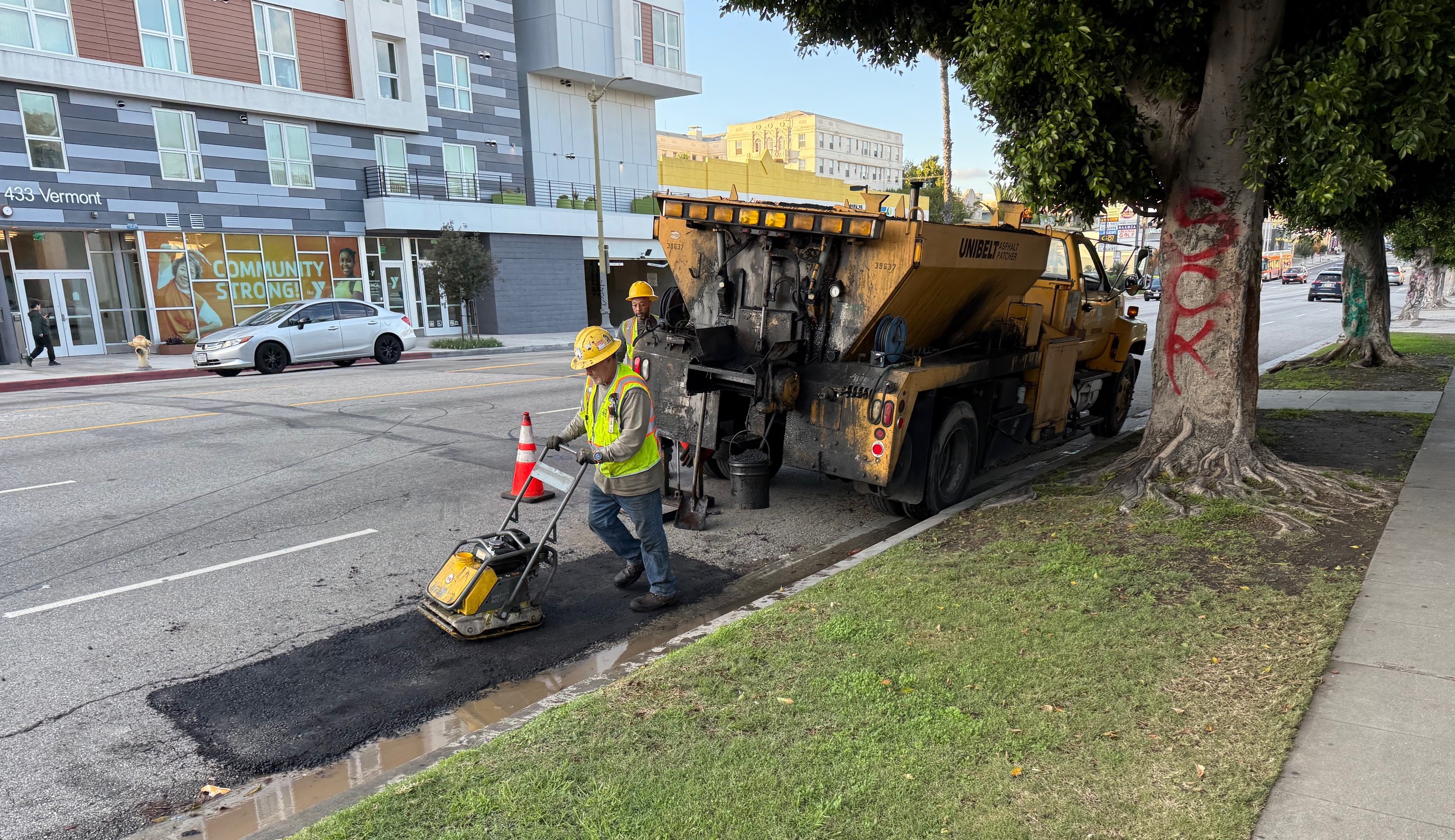
Six months ago he had been hit by a car on Rodeo Road, the young man told me. He was laid up for seventeen days. Now he had a metal rod in his back.
It wasn't a story that made the news. And it wasn't a hit-and-run - the driver actually stopped to help the downed cyclist. But it was awful all the same.
It was also the first I had heard about it.
And I only got to hear it because I had stopped to help the young man fix a flat tire on his BMX. I had seen him holding a lighter up to a DIY duct tape patch on an inner tube at the bicycle repair station at Leimert Park's People St Plaza and figured he could use a hand.
"Do you need a patch?" I asked.
"Yeah, I think so," he said, pointing at the tape. "This here's what we call a 'ghetto fix.'"
As I pulled the tape off, I saw the tube was pretty torn up - something in the rim had done the damage.
I explained this to him and we checked the rim.
Like on a lot of the second- or third-hand bikes I tend to see lower-income folks riding in the area, the inside of the rim was a hot mess of spiky spoke ends and worn-through rim tape. And information about all the different things he could do to keep his bike in better working order wasn't going to be much help to him. He rarely had much in the way of disposable cash.
Instead, we used the duct tape patch to cover up some of the sharpest spots inside the rim and got to work trying to make a pair of patches cover the damaged surface of the tube.
The BMX wasn't his regular bike, he said. That bike had been totaled when he had been hit from behind in that 4 a.m. crash. He had tried suing the driver for his medical expenses, he said, but never saw any of the settlement. He figured the lawyer ended up with the money.
"But, it's not cheap to get a rod put in your back...?" I ventured.
"Whatever," he waved, shrugging it off. "It's done now."
The bills, he seemed to be indicating, had gone unpaid. And he couldn't do much about that, even if he wanted to. So he stopped worrying about it.
Usually when I write up an encounter like this for Streetsblog, this is the point at which I segue into a discussion of what this story means in a larger context. And the case of this indigent and occasionally homeless young man is certainly not lacking for larger contexts.
For one, it points to the unique vulnerability of lower-income folks in lower-income neighborhoods, especially those who must move around the city at odd hours. For another, it speaks to how easily someone who is already struggling to get by can be further set back by something that is unemotionally categorized in the data as a collision (if the event was even reported at all).
And for another, it is a reminder that - in contrast to the conventional wisdom - riding bikes isn't cheap when you are poor. I probably stop to patch up someone's tire once or twice a month, at the very least. In fact, I started carrying extra patches and tools because I find myself doing it so often. In the process, I have stopped being surprised at the terrible condition so many folks' bikes are in or the stories they tell about what they have to do to keep their bikes rolling. I have stopped being surprised at hearing the person I am helping has already been hit by a car at least three or four times, and that the overwhelming majority of the incidents were hit-and-runs where their bikes were totaled. I have even stopped being surprised at getting texts in the middle of the night from people who got stranded by flat tires, fished my card out of their pockets, and reached out in the hopes that I was riding through the area with my patch kit.
But honestly, while talking with that young man, I just found myself getting angry. Angry that his story was so similar to the stories of all the folks I had helped before. Angry that cyclists like him are so vulnerable. Angry that some of our elected officials prefer pandering to their own interests over protecting those for whom mobility can be so fraught. And angry that cyclists like this young man are generally categorized as "invisible."
I have no segue this time, in other words. Just a lot of unhappy feels.
The patch-job was a failure.
There was just too much damage to the tube.
"Where did you get your tube?" I asked.
"A tube cost two dollars and eighteen cents at the 99 cents store," he said. "But I don't have two dollars."
I dug three out of my bag and suggested he could cut up the old tube and line the rim with it.
"Ride safe..." I said.
He nodded as he put his bike back together, "Thank you."
***
Please be safe out there this holiday weekend; take care of yourself and those around you.






